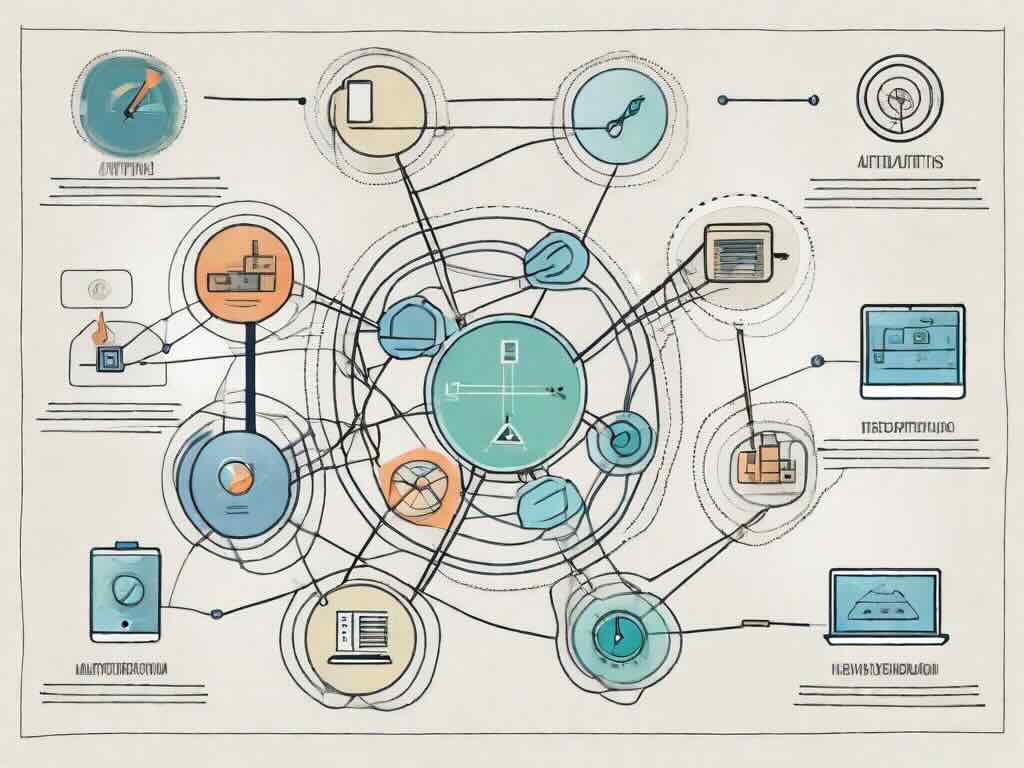
In today’s technology-driven world, both IT (Information Technology) and IT Audit play crucial roles in organizations. However, many professionals find themselves at a crossroads when it comes to deciding between a career in IT or IT Audit. This article compares these two fields comprehensively, shedding light on their basic principles, key responsibilities, required skill sets, career pathways, and salary prospects.
Understanding the Basics: IT and IT Audit
First, let’s delve into the fundamentals of IT and IT Audit individually to gain a better understanding.
Defining Information Technology (IT)
Information Technology, or IT, refers to using and managing computer systems, software, networks, and electronic data. IT professionals create, maintain, and secure an organization’s technology infrastructure. They ensure that the systems run smoothly, troubleshoot any issues, and provide technical support to end-users.
IT encompasses a wide range of disciplines, including software development, database administration, network administration, cybersecurity, and project management. Each of these areas plays a crucial role in the overall functioning of an organization’s IT environment.
Software development involves designing, coding, and testing applications that meet specific business requirements. This process requires collaboration between IT professionals and stakeholders to ensure that the software aligns with the organization’s goals and objectives.
Database administration involves managing and organizing large volumes of data. IT professionals in this field are responsible for designing and maintaining databases, ensuring data integrity, and implementing security measures to protect sensitive information.
Network administration designs, implements, and maintains an organization’s network infrastructure. This includes managing routers, switches, firewalls, and other networking devices to ensure reliable and secure communication between different systems and users.
Cybersecurity plays a critical role in protecting an organization’s IT assets from unauthorized access, data breaches, and other cyber threats. IT professionals in this field implement security measures such as firewalls, intrusion detection systems, and encryption protocols to safeguard sensitive information.
Project management involves overseeing IT projects from initiation to completion. IT professionals in this role are responsible for planning, organizing, and controlling project activities to ensure that they are completed on time, within budget, and according to specifications.
What is IT Audit?
On the other hand, IT Audit focuses on assessing the effectiveness, efficiency, and security of an organization’s IT systems and processes. IT Auditors evaluate the controls, policies, and procedures in place to mitigate risks and ensure compliance with industry regulations and internal standards. They help identify potential vulnerabilities, recommend improvements, and provide assurance that the organization’s IT environment is reliable and secure.
IT Auditors use a variety of techniques and methodologies to conduct their assessments. This includes reviewing documentation, conducting interviews with key personnel, performing tests of IT controls, and analyzing data to identify patterns or anomalies. They also stay updated on the latest industry trends and best practices to ensure that their audits are comprehensive and relevant.
During an IT audit, auditors assess various aspects of an organization’s IT environment, including its hardware, software, networks, data management practices, and IT governance. They evaluate the effectiveness of controls in place to protect against unauthorized access, data loss, and other security breaches. They also assess the efficiency of IT processes and identify opportunities for improvement to enhance productivity and reduce costs.
IT Auditors are crucial in helping organizations identify and address IT-related risks. Regular audits provide valuable insights and recommendations that enable organizations to strengthen their IT systems, enhance data security, and ensure compliance with regulatory requirements.
Key Responsibilities in IT and IT Audit
Although there are overlapping areas in IT and IT Audit, they have distinct sets of responsibilities that professionals in each field should be aware of.
Regarding IT, professionals handle a wide range of tasks to ensure the smooth functioning of an organization’s technology infrastructure. One of their key responsibilities is system installation and configuration. This involves setting up new hardware and software, ensuring compatibility, and optimizing performance. Additionally, IT professionals are involved in software development, designing and creating applications tailored to meet the organization’s specific needs.
Another crucial duty of IT professionals is network administration. They are responsible for managing and maintaining the organization’s network infrastructure, which includes routers, switches, and firewalls. This involves monitoring network performance, troubleshooting issues, and implementing necessary upgrades or security patches.
Database management is yet another important responsibility of IT professionals. They oversee the organization’s databases, ensuring data integrity, security, and accessibility. This includes tasks such as creating and managing databases, implementing backup and recovery procedures, and optimizing database performance.
Furthermore, IT professionals provide user support, assist employees with technical issues, troubleshoot problems, and provide training on new technologies. They collaborate with other departments to understand their technology needs and ensure alignment with the organization’s overall strategies.
Regarding cybersecurity, IT professionals are critical in implementing measures to protect the organization’s digital assets. They develop and enforce security policies, conduct vulnerability assessments, and implement firewalls, encryption, and other security measures. Additionally, they establish data backup plans and disaster recovery procedures to ensure that critical information can be restored in the event of a system failure or data breach.
On the other hand, IT Auditors focus on evaluating an organization’s IT controls and processes. They play a crucial role in identifying potential risks and ensuring proper controls are in place to manage them effectively. IT Auditors conduct comprehensive risk assessments, analyzing the organization’s IT infrastructure, systems, and processes to identify vulnerabilities and potential areas of weakness.
Based on their assessments, IT Auditors plan and perform audits, examining various aspects such as system access controls, data integrity, change management, and compliance with regulatory requirements. They meticulously review documentation, conduct interviews, and perform tests to assess the effectiveness of controls implemented to manage risks.
Through their audits, IT Auditors provide valuable insights and recommendations to help organizations improve their IT infrastructure, mitigate risks, and ensure efficient and secure operations. Their reports highlight areas of concern and provide guidance on implementing necessary changes or enhancements to strengthen the organization’s IT controls.
In summary, while IT professionals focus on the day-to-day management and support of an organization’s technology infrastructure, IT Auditors play a critical role in evaluating and ensuring the effectiveness of IT controls and processes. Both fields are essential in maintaining an organization’s IT systems’ integrity, security, and efficiency.
Skill Sets Required for IT and IT Audit
Both IT and IT Audit demand specific skill sets to excel in their respective domains.
When it comes to IT professionals, having a strong technical foundation is crucial. They should possess in-depth knowledge and skills in various programming languages, systems administration, and network management. These skills enable them to develop and maintain complex software systems, manage server infrastructure, and ensure the smooth functioning of networks. Additionally, IT professionals must have excellent problem-solving abilities to troubleshoot technical issues effectively.
However, technical skills alone are not enough for IT professionals to thrive in their careers. Effective communication skills are equally important. IT professionals often need to collaborate with colleagues, explain technical concepts to non-technical stakeholders, and provide support to end-users. Being able to communicate clearly and concisely is vital for ensuring smooth collaboration and resolving technical problems efficiently.
Furthermore, the IT industry constantly evolves, with new technologies and frameworks emerging regularly. Therefore, IT professionals need to be adaptable and open to learning. Continuous learning and staying updated with industry trends are essential for them to remain competitive in the market. Whether it’s attending workshops, pursuing certifications, or exploring new tools and technologies, IT professionals should always strive to expand their knowledge and skill set.
Skills Needed for IT Auditors
IT Auditors, on the other hand, require a unique blend of technical and auditing skills. While they need to have a solid understanding of technology, their primary focus is on evaluating and assessing the effectiveness of IT controls and processes within an organization.
Analytical thinking is a crucial skill for IT Auditors. They need to be able to analyze complex technical controls and identify any vulnerabilities or weaknesses that could potentially expose the organization to risks. Attention to detail is another essential skill, as IT Auditors must meticulously review and assess various IT processes and controls to ensure compliance and mitigate potential risks.
Effective communication and report-writing skills are also vital for IT Auditors. After conducting audits, they must convey their findings and recommendations to management and relevant parties. Clear and concise communication is essential to ensure that audit findings are understood and necessary actions are taken to address any identified issues.
Furthermore, IT Auditors must possess a broad knowledge of auditing principles and standards. They must be familiar with industry regulations and frameworks, such as COSO (Committee of Sponsoring Organizations of the Treadway Commission) and COBIT (Control Objectives for Information and Related Technologies). This knowledge enables them to assess the organization’s compliance with relevant regulations and standards during audits.
In conclusion, both IT professionals and IT Auditors require specific skill sets to excel in their respective domains. While IT professionals need strong technical knowledge and problem-solving abilities, IT Auditors need a combination of technical expertise and auditing skills. Effective communication, adaptability, and continuous learning are essential for both roles to succeed in the dynamic and ever-changing IT landscape.
Career Pathways: IT and IT Audit
Both IT and IT Audit offer promising career pathways with multiple opportunities for growth and specialization.
Career Progression in IT
In IT, professionals typically start as entry-level technicians or analysts, gradually advancing to roles such as IT Manager, Systems Administrator, or Software Architect. With experience and additional certifications, individuals can transition into specialized areas like cybersecurity, data analytics, or cloud computing. Leadership positions such as Chief Information Officer (CIO) or Chief Technology Officer (CTO) are also achievable career milestones for IT professionals.
Advancement Opportunities in IT Audit
In the field of IT Audit, professionals often begin their careers as Junior Auditors or Internal Controls Analysts. As they gain experience and expertise, they can progress to roles such as IT Audit Manager, Senior IT Auditor, or IT Audit Director. With extensive knowledge and certifications like Certified Information Systems Auditor (CISA), IT Auditors can explore additional governance, risk management, or consulting opportunities. The top echelons of IT Audit include positions like Chief Audit Executive or Chief Information Security Officer (CISO).
Salary Comparison: IT vs IT Audit
Salary is an important consideration for professionals considering a switch between IT and IT Audit. While it is subject to various factors like location, experience, and industry, understanding the average salary ranges in each field can provide valuable insights.
Average Salary in IT
The salaries in IT vary significantly depending on roles and seniority. Entry-level positions like IT Support Specialists or Junior Developers may have starting salaries in the range of $40,000 to $60,000 per year. Mid-level roles like Systems Administrator or Software Engineer can expect salaries ranging from $70,000 to $100,000. The salaries for senior positions, such as IT Managers or Solution Architects, can reach well over $100,000 annually.
Average Salary in IT Audit
In IT Audit, professionals with entry-level positions like Junior Auditors can expect salaries ranging from $50,000 to $70,000 per year. As they gain experience and move into senior roles like IT Audit Managers or Senior IT Auditors, their salaries can increase from $80,000 to $120,000 annually. The top-tier positions in IT Audit, such as Chief Audit Executives or CISOs, can offer salaries exceeding $150,000 per year.
Ultimately, professionals considering the switch between IT and IT Audit should carefully assess their interests, skills, and long-term goals. While IT offers a broader range of technical responsibilities and opportunities for specialization, IT Audit provides a more focused approach to ensuring compliance and risk management. Salary considerations should also be evaluated based on individual circumstances and the market demand for specific roles.
With this comprehensive comparison, professionals can better evaluate their IT and IT Audit career options, making informed decisions about their future path. Whether one chooses to dive deep into the intricacies of IT or explore the world of IT Audit, both fields offer rewarding opportunities for growth, challenges, and the chance to contribute to the ever-evolving landscape of technology.






